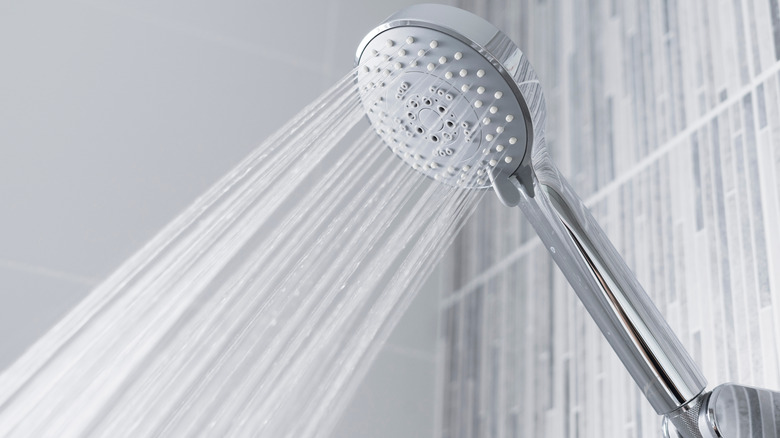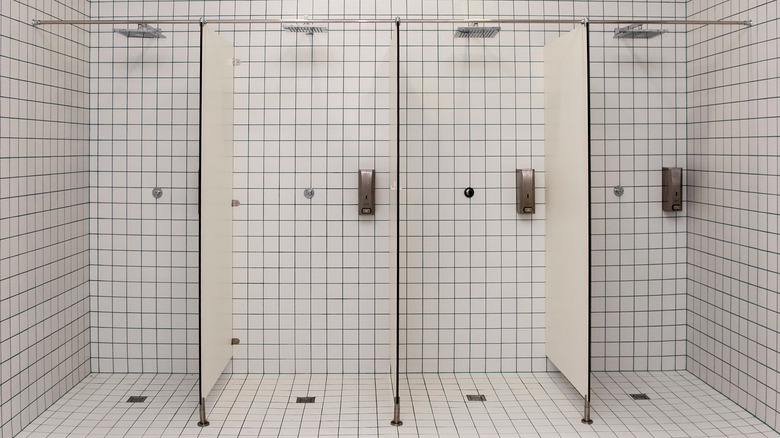Is It Bad To Pee In The Shower?
Although peeing in the shower may seem gross or unsanitary, it's actually not as bad or unhygienic as you might think. That said, urine isn't perfectly sterile – despite the long-standing myth (via Healhtline). While urine is mostly water, it also contains urea, electrolytes, and bacteria. However, the bacteria counts in healthy urine are relatively low, so it's highly unlikely that your own urine could cause a bacterial infection.
"If you think about it, urine is probably 'cleaner' than what you wash off your skin during a shower in the morning or after a gym workout," Dr. Jamin Brahmbhat, a urologist at the PUR Clinic and an assistant professor at UCF College of Medicine in Florida, told Health. "It's probably no different than the water coming from the faucet when it comes to its effect on your physical surroundings." Not to mention, the running water will immediately wash any bacteria and urine down the drain. Nevertheless, there are times when you should not pee in the shower.
Peeing in the shower is not always a good idea
While it's fairly sanitary to pee in the shower most of the time, you should avoid doing so if you have a urinary tract infection (UTI). That's because the bacteria counts in your urine can be much higher when you have this infection (via Self). This can potentially increase the possibility that harmful bacteria in your urine will enter a cut or wound on your legs and feet, which may lead to further infection.
You should also avoid peeing in a public shower or one that you share with family and friends. Why? "Because, manners," Self put it simply. Also, if you have a UTI and aren't aware of it, you risk the chance of potentially spreading infection-causing bacteria to others. If you are going to pee in a shared shower, you should at least take some preventative measures to help prevent the spread of bacteria. "If you are doing this, clean the area with soap and water and run clean shower water on it after you have urinated in the shower to be considerate and sanitary for the next person," Dr. Niket Sonpal, a board-certified internist based in New York, told The Healthy.


